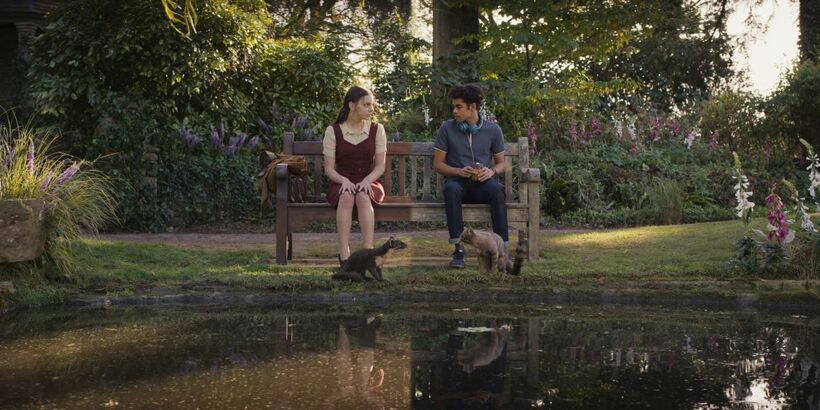Fundamentalism, faith and the power of story
Alistair Fuller reflects on what His Dark Materials has to say about spirituality and a well-lived life.

Since first starting it, I have now lost count of the number of times I've tried to write this post. Watching Jack Thorne's masterful retelling of the last of Philip Pullman's trilogy, knowing what will come – its triumph, its sacrifice and its heartbreaking sadness – I have been as captivated, as challenged and as enthralled as I was when I first read the books, over 20 years ago. But there is so much to say about them, and so much has already been written and said, that it feels impossible to add anything new, or to distil it into a few hundred words.
This story, told across three novels and retold in three near-perfect television series, is rich and potent, inspiring, challenging and unsettling. It tells of great courage, kindness and the power of friendship. It also tells of cruelty, fear, oppression and corruption. There is even a good smattering of quantum and theoretical physics. And it has a lot – and I mean a lot – to say about religion and all its evils.
Religion is pictured as a ruthless, joyless, implacable force, built on a lie and existing only to suppress freedom and crush creativity and imagination. (This is, of course, a very white, western, secular view of religion and Pullman is careful never to allow any possibility that it can also be experienced as joyful, liberating and life-giving. But that is a whole other blog on its own!)
A spiritual story
Yet it is also, somehow, a profoundly spiritual story and perhaps this is what I most want to say about it. If 'spiritual' might be thought of 'that which grounds us, which gives us joy and which connects us', then His Dark Materials is a very spiritual story indeed. There is so much here about the richness and beauty, preciousness and joy of a life well-lived.
Over the course of the stories, we stand shoulder-to-shoulder with angels, witches and armoured bears. We slip through the invisible gaps between worlds, across a multiverse. We visit a garden paradise and walk through the land of the dead. We are introduced to the alethiometer and see the instinctive gentleness and stillness with which it can be used to discern (and I use that word in its fullest sense) the sometimes unwelcome truth.
And there is redemption here, too, and forgiveness; a redemption not won by lots of worthy works but discovered in the dangerous business of loving and letting ourselves by loved.
Finding truth and beauty
What feels most dangerous and dark in these stories isn't religion as such, but fundamentalism, an unyielding clinging to the idea that only one thing can be true and that the rest is lies and must be crushed. Whether it is the calculated cruelty of Mrs Coulter, the self-justifying murderousness of Father Gomez or the equally murderous determination of Lord Asriel, fundamentalism is experienced as ultimately life-denying.
Where life – real life – is found is in truthfulness, generosity, tenderness and courage. It is found in seeing and rejoicing in the beauty of the world and, most especially, in the forging of friendships and the telling of stories.
The telling and retelling of this story has been a great gift, though not always an easy one, and I am especially conscious of that as I prepare to watch the unfolding of the last episode and visit the park bench with Lyra and Will. I hope that this can be a story that continues to challenge us, to call us to adventure, to remind us of what connects and grounds us and gives us joy, and ultimately, a story that might set us free.
The adaptation of His Dark Materials is currently airing on BBC One and is available to stream in full on BBC iPlayer. The final episode will be broadcast on Sunday 5 February at 7pm.


